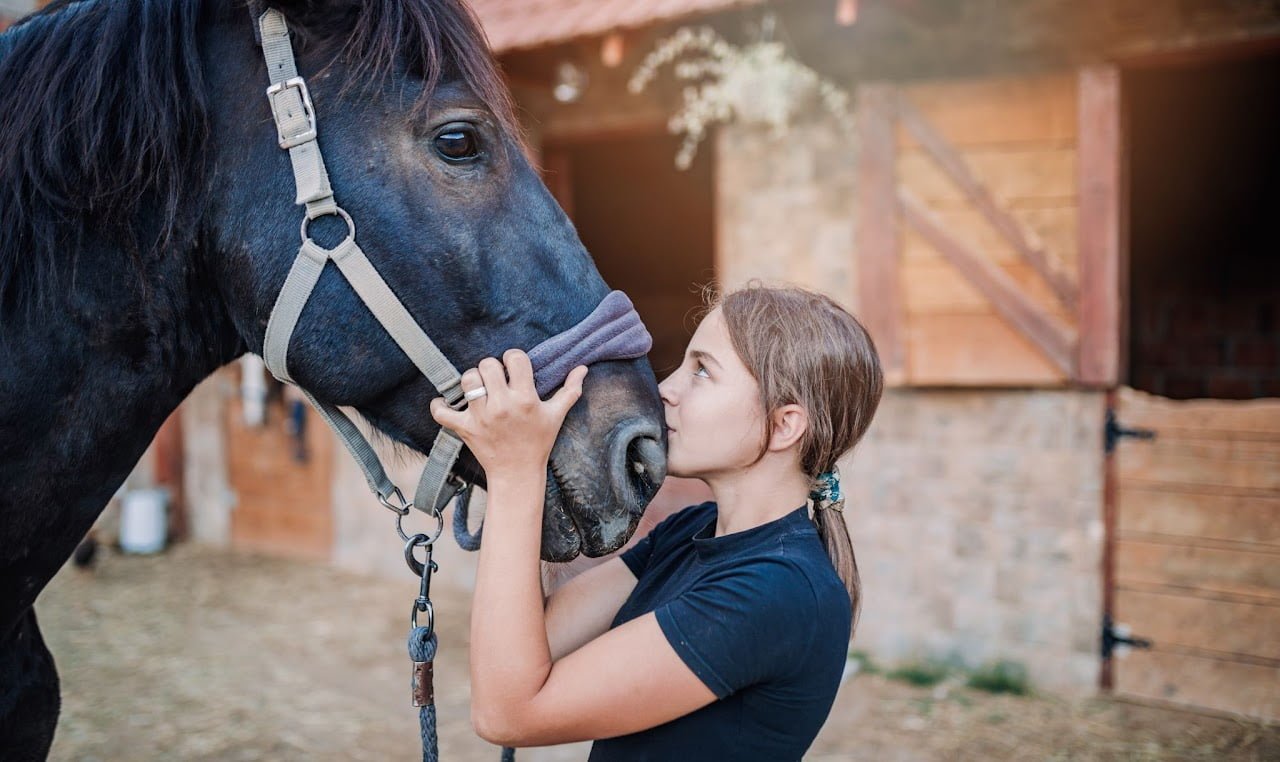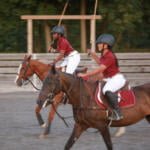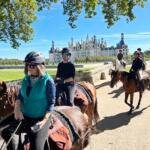“So, how long does it take to learn to ride a horse? How long until she’d be done?” The man waited for my answer as my horse attempted to raid his daughter’s candy bucket at our barn’s annual Halloween party. Trick-or-treaters filed down the barn aisle, admiring decorated stalls and costumed steeds.
The man had just explained to me that his daughter loved horses, and he wanted to get her involved in riding lessons, but his question took me off guard. How long does it take? I thought. Can this guy handle the truth?
I considered how to navigate his inquiry tactfully. Then I wondered how interested he would be upon realizing that horses are a lifestyle, not a hobby you can pick up briefly, learn, and drop once you “know” how. Occasionally, the important details many people don’t understand about life with horses sneak up and surprise me like an ice cube down the back of the neck.
I’ve fielded similar questions before. Once, upon hearing how frequently I take lessons, a family member asked me when I would be done training. There was only one good answer—never. I would either die or retire from riding before I reached a level that could be described as “finished.”
I thought I knew a lot about horses when I was a kid. But the more I learn about riding, the better I understand how much I don’t know. This is often referred to as the Dunning-Kruger effect, and it applies to almost any topic. Psychology Today explains, “This tendency may occur because gaining a small amount of knowledge in an area about which one was previously ignorant can make people feel as though they’re suddenly virtual experts. Only after continuing to explore a topic do they realize how extensive it is and how much they still have to master.”
The knowledge one can discover in the horse world certainly qualifies as “extensive.” Whether someone rides, drives, trains, or does liberty work, they’ll discover something new every day—even if they don’t always realize it. If a person truly feels they have nothing left to learn, it’s likely a larger indicator of the time they’ve spent in their comfort zone than it is of expertise.
I love listening to horse podcasts, and nearly every respected, accomplished, and decorated equestrian guest who gives an interview says the same thing—that they still have a lot to learn and that learning is the key to progress.
Buck Brannaman said, “I’ve always wanted to do the right thing by a horse—that’s never changed. It’s just that as my knowledge grew I’ve been able to offer the horse a better human being.” He also said, “I’m still on the move. I’m getting better because I’m still studying. I still want to be a better horseman.”
We can never learn everything there is to know about horses. It doesn’t matter how enlightened your training techniques are, what vocabulary you prefer, or which discipline you ride—you can’t know it all. As soon as you think you do, your horse will be the first one to prove you wrong.
Riding is not a simple, static, repeatable task. To ride is to work in concert with the instincts, motivation, and opinions of an intelligent animal who possesses humbling strength. And yet, when we treat them right, they’re willing to offer us their very best. Riding is constant progression and development, and it’s never “done.” But isn’t that what makes it wonderful? Isn’t that one reason horses enthrall us in the first place?
If you have a story about how horses or horse people have improved your life, please consider sharing!






